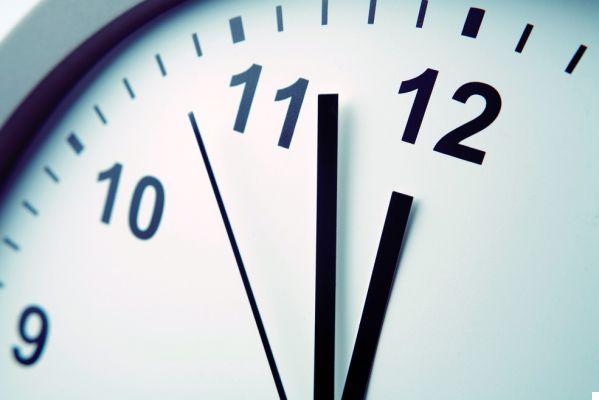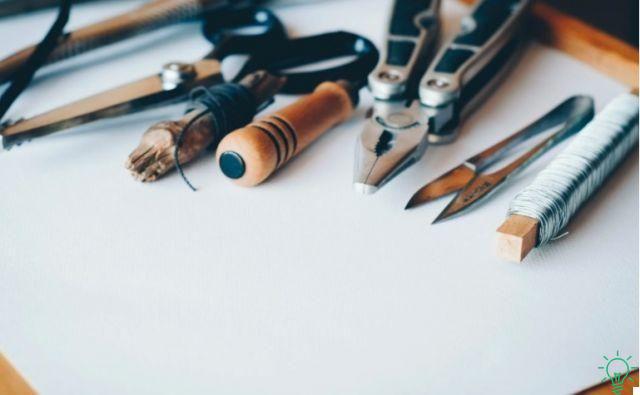
Write a diary it cures us from stress and negative emotions.
It makes us make better decisions and be more effective.
It helps us understand who we are, what we need, what we want.
In short, writing a personal diary is a powerful, simple, free transformation strategy.
This is why it is becoming increasingly popular:
- As a therapeutic tool in psychology
- As a tool for analysis and growth in life coaching
In Spain it is a bit difficult to catch on, especially among men, due to gender stereotypes.
All the more reason, if you are a man, to leave our sexist culture behind and seriously consider start writing a personal diary today.
Knowing that, starting to keep a diary, you will be in good company.
Before you, among others, Leonardo Da Vinci, Frida Khalo, Winston Churchill, Charles Darwin, Mark Twain, Anna Frank, Marcus Aurelius, George Lucas, Ludwig Van beethoven.
But what does it mean to keep a diary?
What are the benefits you will have?
Why does it work so well on our psyche and our productivity?
How do you write a diary?
How do you overcome the fear of the blank page and find the time and desire to fill it?
What does it mean to write a diary
For me, writing a diary means reflect on ideas, events, emotions of your day.
The first key to understanding the importance of doing this lies in the verb "reflect".
Reflecting does not simply mean thinking, because we always do that, for better or for worse.
Instead, it is a deeper activity, which requires you to linger intensely about something with thought, considering it with great attention.
And it is precisely this depth of thought, which you normally do not reach in everyday life, that gives you the depth of results that you get by keeping a diary.
The second key to understanding the importance of keeping a diary lies instead in the objects of this reflection:
- Idea
- HISTORICAL EVENTS
- emotions
How many times have you had brilliant ideas and then you have them forgotten or left in a corner forever?
Even a fantastic idea, if it is forgotten or remains in a superficial state of analysis, is useless
How many times has something important happened to you, that would have deserved your attention, Yet haven't you found the time to give it to him?
With the result that that important event, not having analyzed it in depth, taught you very little.
How many times do you happen to experience strange, unpleasant, disturbing and of emotions carry them with you for a long time without ever solving them?
But if you don't rework negative emotions, they will inevitably cause you suffering and harm over time.
When you start writing a personal diary it happens instead that, every day or almost:
- Fix and deepen your ideas
- Make sense of what happens to you
- Clarify your emotions
For your life, your profession, your study, immense spaces for improvement open up.
8 Awesome Things That Happen When You Start Journaling
The positive effects of writing a personal diary are many and well documented:
1. It reduces stress
Writing down sadness, fear, anger, worry helps take off power to these negative emotions.
Psychologist Karen Baikie of Cambridge University has even demonstrated its effectiveness for the treatment of Post Traumatic Stress Disorder and anxiety in general.
The reason is that we tend to inhibit and not deal with negative emotions, which roots them even more, making them more harmful.
Keep a diary instead it allows us to deal with them effectively.
2. Improve learning performance
It is now known that learning by doing, or learning through experience, is more effective than passive learning typical of traditional teaching.
However, it has recently been shown that there is something even more effective than experience: reflect on it after having done it.
According to a study by Harvard University, those who reflect in retrospect and in writing on their experiences can significantly improve performance compared to those who do not.
Obvious? Perhaps.
But when was the last time you took a pen in your hand to detail something you did and analyze it afterwards?
3. Drive out cerebral aluminum
Especially in times of stress and pessimism, it happens that your mind is agitated by the so-called intrusive thoughts.
Negative, pessimistic, disturbing ideas and feelings that you try to drive away but that keep sneaking into your mind and not giving you peace.
Putting these intruders on a piece of paper and defining them exactly by writing them in your personal journal is a very good strategy to get rid of them.
4. Improve short-term memory
Dr. Kitty Klein of the University of North Carolina demonstrated, in an experiment involving her students for two semesters, that writing a daily journal of one's negative emotions:
- Significantly improves short-term memory
- Improve your score in aptitude tests such as the SAT.
The reason may lie precisely in what we have seen in the previous points.
When you reduce stress and banish intrusive thoughts it's like freeing up resources.
Resources your brain can use to better focus on the present than what it is doing.
5. It helps you to know yourself better
At the entrance to the temple of the oracle of the god Apollo in Delphi there was an inscription in ancient Greek: “gnōthi sautón”, or know yourself.
The same phrase, this time in Latin (temet nosce), is found 2500 years later in the kitchen of the oracle of the film The Matrix.
It implies that:
- We can only change our mindset if we know it.
- We can only cure ourselves if we understand exactly what ails us.
- We can only be better if we exactly identify our limitations
From the knowledge of ourselves in short, it depends on the control we have over our lives and our thoughts.
6. Increase your happiness level
So far, perhaps a bit from professional bias, I have focused on the problems that writing a diary helps to solve.
It must be admitted, however, that thinking about life only in terms of a problem -> cure, weakness -> improvement is an understatement.
Your journal doesn't have to be always focused on what's wrong.
You must also write a diary for celebrate and enhance what is good in your life and what you love about yourself and others.
Take a minute to write down on a piece of paper how grateful you are to life for all the beauty it holds and you will probably find that you are happier than you think.
7. It serves the future you to consult with who you are today
It wouldn't be nice to write a letter to yourself about the future? To make him recommendations, to advise him, so as not to make him repeat the same mistakes.
That's what you get when you write a personal diary.
You see, our memory it is much less accurate than we think.
Especially when it comes to feelings and emotions, our internal experience comes continuously reworked without us even realizing it.
Keeping a journal allows your future you to go back in time.
What really happened that day? How did you feel with that person and in that situation?
Giving you these answers can be very helpful in not repeating the same mistakes.
Or to make you appreciate some important affection again that may be fading a bit over time.
8. Makes you more trustworthy and increases your willpower
Starting to keep a diary, you will see, is not easy.
On the other hand, every time we try to insert a new habit in our daily routine, whether it is exercising, studying a musical instrument, learning a language, etc., we encounter great resistance in ourselves.
You may think it's low willpower, but it's actually a poor strategy problem (read how to increase your willpower).
Keeping the commitment of write a 5-minute diary every day, prove to yourself that you are trustworthy.
This improves:
- your self-esteem
- your ability to make commitments with yourself
- your ability to stay focused on your long-term goals
6 tips to start writing a diary
The fear of the blank page is something very real and can immediately destroy your desire to keep a journal.
Writers know this well and I try it too, in my small way, every time I dedicate myself to a new article for the blog.
Just as our natural tendency to procrastinate (find out why we do it and how you can stop) risks never getting you started.
Here are some tips that will help you write a diary overcoming fear and the desire to postpone.
1. Start small
I often repeat this in my book "The kata of the will".
Better to start with small steps than with huge ambitions that then crush you with their emotional weight.
That is, it is better to decide to write in the diary 5 minutes a day for a week than to propose to do it half an hour a day from today and forever.
Remember that when a commitment is immediately very large, it scares us and decreases the chances of completing it.
2. Do not let anyone read the diary
If, when you write your diary, you know someone will read it, inevitably you will not be able to be completely sincere and casual.
You will worry about the opinion of others and you will not be able to overcome your inhibitions, which, on the other hand, is necessary for the diary to be effective.
3. Write the diary straight away
You don't have to win a literary prize and you don't have to impress anyone.
So you don't need to weigh every word before you start writing.
Just follow the flow of your consciousness and your internal reflections, favoring the content over the form.
4. Read it again but don't correct it
If a sensation, compared to when you wrote it, has changed ...
If you have found a way to better express a concept ...
If you have modified or deepened your idea ...
do not correct what you have written before, but add to what is already there.
You see,
keeping a journal is an additive process, like life: everything new does not erase or rewrite the past but add to it by completing it
5. Attention to detail
Just writing a diary may not be easy.
And if you do it in the wrong place, at the wrong time and with the wrong objects, you are a candidate to give up right away.
First of all, therefore, the diary you write on must like you, it must reflect your personality, it must be comfortable to use.
Then, find a space and time dedicated to writing, in which you can have peace and privacy. .
Finally, try to always write at the same time and not skip any days.
This will make it easier to make it a habit.
6. Not facts, but ideas, emotions, important events
Some people's diary is a list of facts.
It is clear that they are cheating at the game because they still don't feel like overcoming their inhibitions.
A personal diary, to be useful, it must be turned inside yourself, not out of you. Even the events must be described according to what they have caused in you.
Start your diary every day with "Today I feel“, Not with“ Today it happened to me ”, and you will see that it will be easier to be sincere and introspective.
A few last practical tips
The most important thing: try it.
If you want to grow, transform, be smarter, more effective, happier, reading about these topics is not enough, you must also put them into practice.
If not, it's like thinking about improving your breath by reading about running, but never putting on a suit and shoes to go out for a run.
Absurd not?
Then, do not confuse, as many do, different tools: writing a diary is used to reflect on yourself, on your emotions, on your life.
If you want to plan your day instead, use productivity systems such as to-do lists, the 7-minute technique, the Ivy Lee method.
Remember that it is not mandatory, if you start writing a diary, then carry it on forever.
On the contrary, you could decide to use this tool in some periods of your life of particular difficulty or need and leave it alone in others, a bit like it happens with medicines.
You can finally write more diaries, dedicating them, instead of your life in general, to specific projects that are very important to you: university, work, children, health.
Obviously the introspective and reflective cut will remain, but it will be strongly connected the practical aspects related to the project / objective you created that diary for.
This blog, for example, I would hardly be able to carry it out effectively if I had not started writing, for some time now, a diary in which I describe and analyze its development.
Diaries of this type I call them "log books". Like that of the Enterprise in Star Trek.
And, like the Enterprise, they can take you far.


























